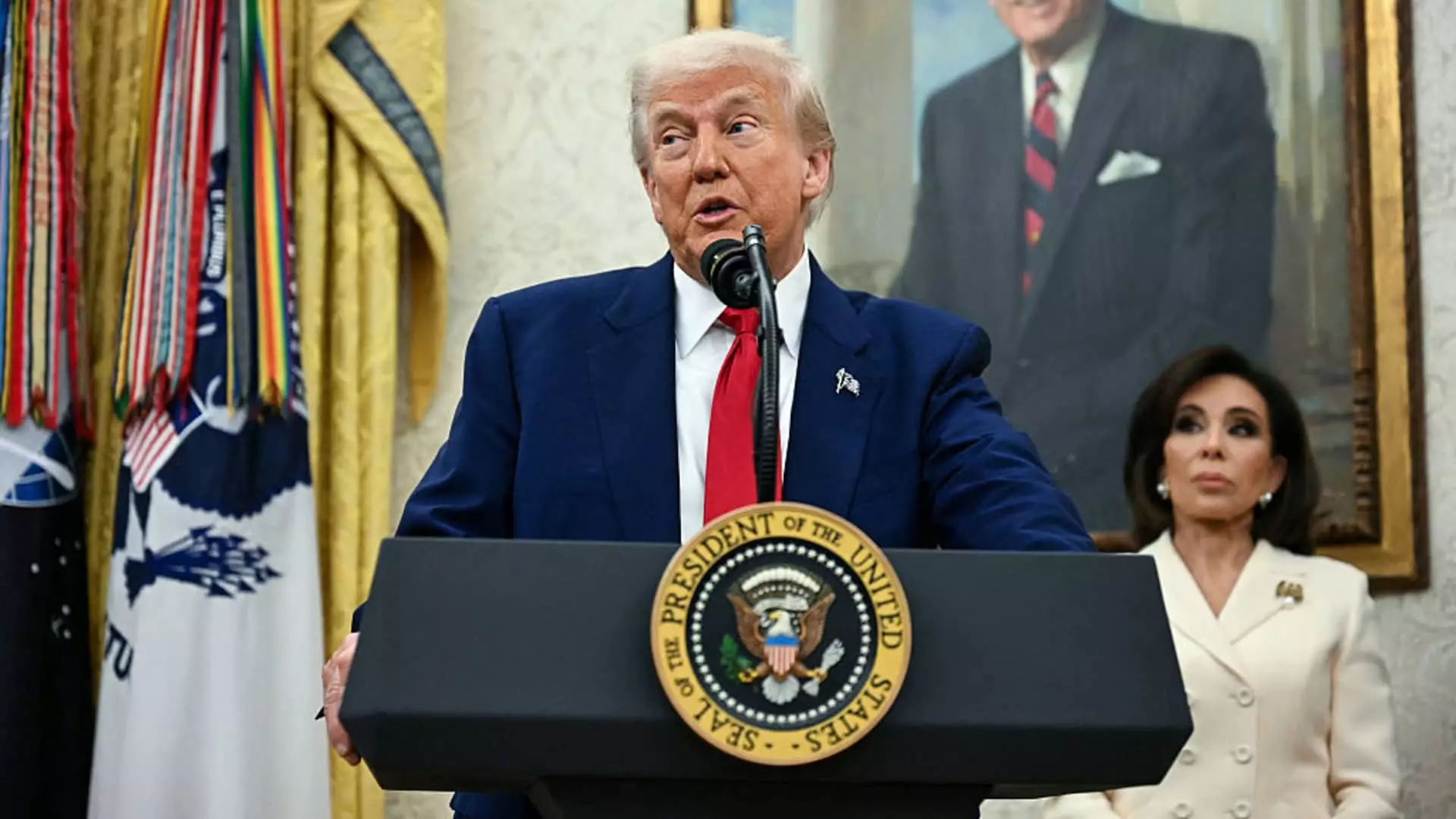The continually shifting landscape of President Donald Trump’s trade policy resembles a precarious dance—a dance that is characterized by bold declarations yet punctuated by a retreat just as audacious. The term “TACO trade,” which stands for “Trump Always Chickens Out,” epitomizes this pattern and reflects a growing cynicism surrounding his approach to tariffs. Announcing steep tariffs only to retract or soften them weeks later seems to be a hallmark of Trump’s negotiating style, inviting skepticism from financial markets and pundits alike. However, in the hyper-political environment of today, one must question whether this apparent capitulation is merely a tactical choice, or evidence of a deep-seated aversion to commitment in an arena where steadfastness is crucial.
Negotiation or Evasion?
Trump’s recent dismissal of claims that he is “chickening out” from his threats is a classic example of his rhetoric—where he positions himself not as a hesitant adversary but rather a shrewd negotiator holding the upper hand. His assertion that he requires nothing less than a 50% tariff to stimulate discussions with the European Union frames a narrative of strength, but what does this ultimately reveal about his governing philosophy? Is he truly engaged in rigorous negotiation, or is this a smoke screen to deflect criticism?
For instance, when questioned about delaying tariff implementation, Trump’s retort was that this was part of his negotiation strategy—an angle that many find hard to accept. History shows that negotiating isn’t merely about creating urgency through threats; it’s also about forging relationships and establishing trust. His tactics seem more akin to a high-stakes poker game than progressive diplomacy, leaving a wake of uncertainty and market volatility.
The Ripple Effects on Markets and Morale
Trump’s abrupt tariff adjustments have direct implications not just for diplomatic relations but also for domestic markets and consumer confidence. Each tariff announcement unfailingly sends stocks tumbling, only for them to rebound heartily following a pullback. This seesaw effect does not just affect Wall Street; it affects Main Street, where increased tariffs can translate into higher prices for everyday goods, eroding the purchasing power of average Americans. Critics might argue that this is reckless governance, breeding an environment of unpredictability when businesses crave stability to thrive.
Moreover, the idea that a change in strategy is dismissed as “chickening out” underscores a troubling discourse in American politics. The very notion that flexibility can be viewed negatively only complicates necessary dialogues about policy efficacy. The system should encourage adaptation in the face of changing circumstances, rather than serving as a platform for ridicule when leaders make pragmatic decisions that reflect economic realities.
America’s Trade Future: A Balancing Act
The playbook for 21st-century diplomacy must evolve beyond bravado and into a realm where thoughtful, impactful strategies dominate. Tariffs, when wielded correctly, can serve as serious tools for negotiation, but when used haphazardly, they run the risk of dismantling alliances and fostering global instability. As much as Trump’s fans might celebrate his bombastic style, GOP leaders and citizens must cast a wider net for sustainable practices rooted in evidence-based negotiation and mutual respect.
In the end, if America continues down this precarious path, there lies a danger—not only of future delays and uncertainties but also of undermining the very confidence that democracy seeks to foster in governance and international relations. The stakes have never been higher, and whether Trump’s tactics are ultimately viewed as triumphs or blunders remains to be seen.


Leave a Reply